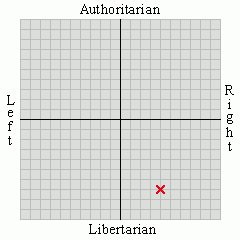Blogger Tim Worstall likes the defence and wants the three MPs to succeed.Wh00ps said much the same thing in a comment on my post, except like one of the Captain's commenters he mentioned the clause that says Protestant subjects are allowed arms suitable for their defence and as allowed by law.
So do I.
If they win their case, it validates the BoR and opens the floodgates. Every single fixed penalty notice ever issued has to be repaid to the people who were fined before being convicted. This is no more than highway robbery. Even Dick Turpin had the decency to wear a mask. Modern highwaymen, aka the bobbies, are slightly more affable when they collect revenues for the Chancellor. It is still theft, but it is done with a cheery smile.
I have embedded a link to the Bill of Rights in my title, above, and you should read it (link reproduced here, though it's been in my bookmarks for a few years. And the Captain is right, everyone should read it - AE), but the line we are most interested in is this one:
That all grants and promises of fines and forfeitures of particular persons before conviction are illegal and void
Folks, I'd love to believe that something as simple as a trio of troughing bastards winning their legal point about the Bill of Rights would achieve all this it but I'm far from convinced it'll affect anyone else at all whether they win or lose. Very far indeed.
First let's look back at the article about the use of the BoR by the MPs (my emphasis):
Three Labour MPs being investigated for expenses fraud are arguing that they should not be prosecuted because their suspect claims are covered by parliamentary privilege.Okay. Now let's look through the text of the Bill of Rights and see what it says that fits in with the two bits of the article I bolded for emphasis. I'd say that there are two bits that look relevant. Firstly there's a bit about why the BoR is needed:
The MPs have hired legal experts to assert that the 1689 Bill of Rights protects them from prosecution.
The lawyers are understood to have sent detailed submissions to police and prosecutors which contend that the House of Commons rule book on expenses is “privileged” and cannot be subject to scrutiny by the courts.
Whereas the late King James the Second, by the assistance of divers evil counsellors, judges and ministers employed by him, did endeavour to subvert and extirpate the Protestant religion and the laws and liberties of this kingdom;And secondly what the BoR says is law from then on:
...
By prosecutions in the Court of King's Bench for matters and causes cognizable only in Parliament, and by divers other arbitrary and illegal courses;
And thereupon the said Lords Spiritual and Temporal and Commons, pursuant to their respective letters and elections, being now assembled in a full and free representative of this nation, taking into their most serious consideration the best means for attaining the ends aforesaid, do in the first place (as their ancestors in like case have usually done) for the vindicating and asserting their ancient rights and liberties declareI suspect that these, or more likely just the latter, are what the MPs want to use as the reason for not prosecuting them. 'You can't touch us, we're MPs and the Bill of Rights says that for stuff that goes on in Parliament no court apart from Parliament itself can even hear the case.' Yesterday I asked if that's what the Bill of Rights was intended to be used for, and I really fucking doubt it. I have no more than a passing interest in the law but I'm guessing the legal question for the court to answer is whether or not the 'freedom of speech and debates or proceedings in Parliament' extends to submitting expenses which may include false declarations made for personal gain. But either way it doesn't change things for the BoR. As I said over at Captain Ranty's:
...
That the freedom of speech and debates or proceedings in Parliament ought not to be impeached or questioned in any court or place out of Parliament;
...it's possible for a friendly/compliant/retarded judge to buy that, but wouldn't it be in isolation from the rest of the BoR and change nothing about fines before conviction, a right to arms, petitioning the monarch and so on? And if the judge tells them to fuck off how does that invalidate any part of the BoR, even the part they were trying to use to cover up their dishonesty? IANAL but surely if they lose they're just being told that submitting expenses is not a 'Parliamentary proceeding' but the same tedious routine that millions of people are expected to do week in week out without lying through their teeth, and so Parliamentary Privilege doesn't cover it. Doesn't mean the BoR is dead in any way, it just means that you can't call absolutely anything that happens in the Palace of Westminster a 'proceeding' and use it to avoid prosecution.As an aside, and as I mentioned to a commenter called Richard at Chez Ranty, it strikes me that calling anything that happens in Parliament a 'proceeding' would be a dangerous precedent to set anyway. Groping secretaries? 'Nah, fuck off wiggie, it's a proceeding innit? It's privileged and I've got enough mates in Parliament that they won't impeach me.' Okay, maybe they wouldn't go that far, but could a hypothetical MP claim that the information they leaked to a foreign power for reasons of personal ideology was a 'Parliamentary proceeding'? What about a backhander? Anything half convincing, a tenuous link to the constituency for example, could be enough to convince a court that it didn't have jurisdiction and that only Parliament could deal with it. Do we really want the cunts to be that fireproof?
Anyway, moving on Captain Ranty said he was looking at it, as he put it, 'holistically'. Again, with the usual caveats about my absolute non-lawyerness (or I'd have billed him by now ;-) ), I said that as far as I know the BoR is still very much alive and kicking, but you don't necessarily know if it'll do what you want without testing it in court. Obviously some of it is a given: you can petition the monarch, for example. But other things need to be tested, argued and ruled on before we all know where we stand, which is what the three MPs in this case are doing. Their success or failure doesn't validate or invalidate any other part of the Bill of Rights, or even the part they're arguing about. It'll just determine whether courts can hear cases in which MPs are accused of defrauding the long suffering British taxpayer by lying about their expenses, or whether it is a Parliamentary proceeding and can only be heard by Parliament itself - if it can be arsed, natch.
The Captain also said::
A win by Troughers United will prove that [the BoR is still in force] and it will pave the way for millions to pick out the line that serves their cause.The thing is that the BoR is still in force and there's nothing stopping people from doing that right now. In fact a small number have done so. Robin de Crittenden is one of 'several people' to challenge parking fines using the BoR, presumably that same section that Captain Ranty is interested in that says fines and forfeitures are illegal and invalid before conviction. As of the date of that article, November 2005, it hasn't got anyone anywhere.
A spokeswoman for the National Parking Adjudication Service said no previous challenge to parking fines using the Bill of Rights had been successful.Okay, not all good news. But the fact that the Bill of Rights was used to challenge the fines in the first place shows that in 2005 it was alive and kicking in 2005, albeit not actually kicking arse and taking names for civil liberty. There is some possible good news though. Another court hearing a case involving the metric martyr mob had this to say (from here):
"There have been a number of cases where the Bill of Rights has been argued to refute liability for a penalty charge notice," she said.
"None have succeeded and, as far as National Parking Adjudication Service are aware, there have been no applications to the High Court for Judicial Review of those decisions."
As the BWMAOnline point out there, that brings up a point about parking fines that should interest Captain Ranty and others who hope the BoR 'fines and forfeit' clause will invalidate all those fucking Fixed Penalties and other fines that are used both as random revenue generators and cattle prods to keep the proles under control and uncertain as to what the fuck is still allowed in Britain these days. The court specifically listed the Bill of Rights as one of the 'constitutional acts' that can't be repealed in whole or part simply by the passing of a later Act that conflicts with it. Normally if the Thingy Act 1988 doesn't agree in places with the Thingies, Whatsits And Assorted Oojamaflips Act 2002 then it's the later one that is the law. The earlier one is still law in places where both Acts agree or where the later Act doesn't have anything to say at all, but if there's disagreement on a given point the law says newer Acts trump older ones unless, as the ruling in the Metric Martyr case states, the Act is a 'constitutional' one. Can open, worms everywhere, because..."We should recognise a hierarchy of Acts of Parliament: as it were "ordinary" statutes and "constitutional statutes". The special status of constitutional statutes follows the special status of constitutional rights. Examples are the Magna Carta, Bill of Rights 1689 … Ordinary statutes may be impliedly repealed. Constitutional statutes may not…"Thus, the Divisional Court ruled, the European Communities Act 1972, requiring metric, could and must repeal the Weights and Measures Act 1985 (allowing pounds and ounces), because the former was a "constitutional act" and the latter "ordinary". This is the point on which Sunderland greengrocer Steven Thoburn and his co-defendants were convicted as criminals for selling in pounds and ounces.
During the 1990s, the majority of local councils in England and Wales "decriminalised" the levying of parking fines. This means that, instead of referring disputes over penalties to legal bodies such as magistates courts, now, disputes are heard by administrative bodies:Again, the downside is that someone still has to go and argue the point in a court, which costs money and can result in a savage and lubricant free butt fucking from the state if you lose. And quite possibly it's not the only point you'd need to argue, since I've been told that one possible reason for Fixed Penalty Notices to be called that is specifically to avoid calling them 'fines' at all, which in turn avoids conflict with the BoR. I don't pretend to know how true that is but if you were trying to appeal your
But if the Divisional Court's ruling is true, Local Authorities covered by the above two schemes, are now acting unlawfully, since the Bill of Rights Act 1689 was specifically classified as a "constitutional Act". The Road Traffic Acts 1991 and 1994 others like it are, by contrast, "ordinary" Acts. Unless the road traffic acts expressly refer to the fundamental rights laid down by the Bill of Rights Act (which they do not), they must fall by the wayside since, according to the Divisional Court, the Bill of Rights Act cannot be impliedly repealed. It is a constitutional Act that protects our "constitutional rights".
- For London, the Parking and Traffic Appeals Service
- For England and Wales, outside London, the National Parking Adjudication Service
So, if constitutional Acts like the Bill of Rights and the European Communities Act cannot be impliedly repealed, why are local authorities still collecting penalties from the public without conviction? Presumably, local authorities do so because they do not agree with the Divisional Court; they believe that the Bill of Rights Act was repealed impliedly by the Road Traffic Act. But, if this is so, what is the legal basis for prosecuting traders using pounds and ounces?
Going back to the Bill of Rights as it relates to possible getting lying bastard politicians off a hook Captain Ranty went on to say:
BUT, if they do win and the win is pegged to IMMUNITY, then I want some of that.Wouldn't we all, but if I'm right that Devine, Morley and Chaytor are going to try claiming that 'freedom of speech and debates or proceedings in Parliament ought not to be impeached or questioned in any court or place out of Parliament' means not having to answer to a court then the win would probably be pegged only to immunity granted as part of Parliamentary Privilege. Fine if you're an MP being asked awkward questions, but not much use for the millions who are not Parliamentarians and might like all the bloody fines to stop or to have a wider choice of means with which to defend themselves than yelling Hari Krishna or putting up one of these:
That last bit is something that both Wh00ps and Richard were hoping a win for the troughing MPs would change, but again I'm not sure it'll make any difference at all. For one thing the same problem applies: their plan is to argue that the clause about Parliamentary Privilege means they don't have to answer for what they did to a court, and that's it. I may be mistaken but I think the court won't be considering the validity or not of either the Bill of Rights as a whole, because I think there's no doubt that it's valid, or of any part other than the Parliamentary Privilege clause. The problem there is not whether the BoR is still valid but that its wording leaves an enormous loophole. I've blogged before on gun laws, and at the time I said:
It might come as a surprise to a lot of Brits that actually guns have not always been banned, but it’s true all the same. The 1689 Bill Of Rights states:Or as I put it in the comments at Chez Ranty, it's like saying you can have any colour you like as long as it's black. It also occurred to me that even without those five words arguments would probably be raging about what constitutes suitability when it comes to defensive weapons, just as the Yanks argue about what a well regulated militia is and where the commas should go. The thing is if you're going to have a Bill of Rights listing what you see as some of the most important and fundamental natural rights enjoyed by all citizens you really need to do it in such a way that people hundreds of years after you're dead who disagree and want to remove some of those rights can't simply say that you meant something else. That means a very different form of language from the usual prolix legalese. Let's look again at the English version from 1689, followed by the American version from just over a century later.
“That the subjects which are Protestants may have arms for their defence suitable to their conditions and as allowed by law.”Think about that. But for those last five words the UK today might resemble the USA far more closely in the numbers of privately held guns, but since that last clause implies a changeable law it has been altered so as to allow practically no arms at all. Yes, the “which are Protestant” bit is unfair but I think it was dropped a while afterwards, but in practical terms the whole sentence has become irrelevant now. The Bill Of Rights is still law so subjects may still have weapons “as allowed by law” but practically nothing, and certainly no firearm, is “allowed by law” now. UK gun control began in 1903 when an act was passed that made a licence necessary for possession of some handguns, although getting one wasn’t expensive.
That the subjects which are Protestants may have arms for their defence suitable to their conditions and as allowed by law.The English version is really a positive right - 'oh, you can have arms suitable for your defence, go on, we'll let you... but only if nobody passes a law against whatever arms you have, and incidentally you'd better be in church on Sunday shaking the vicar's hand, got it?' The Yanks did better and made it a negative right that 'shall not be infringed', but I still think they scored an own goal. My favourite magic performers explain what they think was meant by James Madison and the other authors of the US Constitution:
A well regulated militia being necessary to the security of a free State, the right of the People to keep and bear arms shall not be infringed.
Now that makes sense so I'm inclined to agree, but look at it again. If they hadn't begun by trying to justify the need to bear arms and skipped over all that militia crap there'd be no arguments and Penn and teller would have had to find another subject for that episode of Bullshit!, because the Second Amendment would read simply:
The right of the People to keep and bear arms shall not be infringed.That's much simpler and easier to understand the intent, and if people in years to come decide they don't like it or it's no longer relevant in their time then they can go through whatever process they have to repeal it. The Yanks have a couple of ways neither of which are straightforward, while in the UK it would mean passing a specific Act and here in Oz it would (I think) need a referendum that passes with a majority of states as well as a majority of the people in each state (which is why changes to the Australian Constitution are as rare as rocking horse shit). The Americans did better than anyone else since their Bill of Rights is mostly boiled down to the simplest way of expressing the right being discussed, consists largely of negative rights, and is clear on the very important point that it is not supposed to be an exhaustive list. As much as I hold the 1689 Bill of Rights in high regard it doesn't really match up to the US version, and the US version itself has plenty of rom for improvement (and Australia doesn't have one at all). Some day, and I've no idea when, I'll get around to blogging my dream Bill of Rights. Other people have had a go and I won't pretend some haven't influenced my thoughts on it, but right now I'm pretty vague about an awful lot of it. What I am sure of is that it would need to be much simpler than the 1689 version, which might need to be honourably retired, and almost certainly simpler even than the American one. If everyone is supposed to enjoy equality before the law then it seems vitally important that the ultimate law of the land be as simple as possible, because if you can't understand it you're not really on an equal footing to someone who can. The Bill of Rights must be, to misquote Einstein, as simple as possible but no simpler.
Anyway, that's all for another blog and fairly tangential to whether the MPs will win or lose and what effect either will have on the BoR. So let's consider this: can Mrs Queen set taxes or raise an army on a whim? And if not isn't that because the BoR says she can't and that Parliament must consent to it? That would mean that the BoR is still valid (even if certain clauses have been neutered by other legislation) and therefore if the three troughers win nothing changes. And if they lose? Will Mrs Windsor be able to set taxes or raise her own army then, or will the BoR still prevent her? Would we even want her to be able to? A few people have said that letting three dodgy MPs get away would be worth it if they win and confirm the BoR's legitimacy, but if the flip side of that is that their losing would mean an absolute monarch (or pretty close) for the first time in about four hundred years what then? Look again and see what James II was up to that brought about the 1689 Bill of Rights in the first place. For all her faults Lizzie probably wouldn't act as an absolute monarch even if she could, but you can never be certain about the future. Monarchs yet to be born might want to emulate James II, and frankly I'm not even sure that I'd trust that Gaia worshipping wingnut son of Mrs Queen with the powers of an absolute monarch - for all we know the first decree of Charles III might be that coal has a 1,000% duty or something. But as I've said more than once I'm pretty certain that the MPs will argue and the court will consider just one line of the BoR, and if - oh pleasepleasepleaseplease - they fail to convince the court that dishonest expenses claims are protected by Parliamentary Privilege it won't affect the BoR in any way.
So I hope they fail. More than that I hope they fail spectacularly and with much humiliation, and that on the way out of court they all fall down the stairs and land on their balls.




















1 comment:
Post a Comment